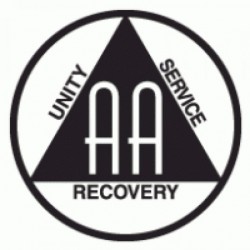The Power of the 12 Step Program
The 12 Step program model got its start in the 1930s as a mutual support-based approach for helping alcoholics maintain sobriety. From there, the 12 Step program has evolved to address addiction in most all its forms.
Addiction, in general, changes the way a person thinks and views self and others in fundamental ways. The power of the 12 Step program approach lies in its ability to help recovering addicts replace the psychological effects of addiction with a healthy mindset.
As a support-based model, 12 Step programs offer a long-term treatment solution that benefits a person throughout the recovery process. Since the potential for relapse continues to haunt even the most determined in recovery, access to these support groups can prove invaluable during difficult of times.
The 12 Step Program Approach

Alcoholics anonymous is the first ever 12 step group.
According to the Substance Abuse & Mental Health Services Administration, each of the 12 steps takes recovering addicts through a necessary developmental stage within the recovery process. With an overall emphasis on abstinence and sobriety, 12 Step program members learn to take responsibility for their recovery and the choices they make from day to day.
Since addiction, in all its forms, follows a certain set of behaviors, attitudes and lifestyles, the 12 Step model can be used for all types of addictions, some of which include:
- Narcotics Anonymous
- Overeaters Anonymous
- Cocaine Anonymous
- Gamblers Anonymous
- Dual Recovery Anonymous
As an addict’s behavior inevitably affects the lives of their family and friends, 12 Step models also exist for significant others, children and friends.
A central part of the 12-Step approach entails the belief and recognition of a higher power as a source of strength in recovery. This principle enables recovering addicts to relinquish whatever control or power they may think have over addiction to a higher power. In the process, a person learns to develop the type of character and outlook that makes long-term sobriety possible.
Support-Based Treatment
As a long-term, lifetime treatment, the importance of social supports becomes the overall life lesson to be gained from the 12 Step approach, according to the U. S. Department of Justice. Throughout the course of any one 12-Step program meeting, members share personal experiences and lessons learned along the way.
Personal experiences recount the challenges members face in recovery and how they’ve overcome the desire to use. In effect, these experiences help other group members manage addiction in their day-to-day lives. The value of personal experience is also reflected in the sponsorship model where new members link up with experienced members who sponsor or mentor them in recovery.
Long-Term Treatment Program
While meeting formats can vary from group to group, most meetings work through the twelve steps over a period time where each step is discussed in depth. Though 12 Step programs do entail a self-help approach, most detox, residential and outpatient treatment programs incorporate this model into their overall treatment process.
According to the University of Arizona, the 12 Step model focuses on four key objectives that make long-term abstinence possible:
- Doing a personal inventory
- Accepting addiction for what it is
- Personal development
- Helping others overcome addiction
Through regular attendance at 12 Step meetings, recovering addicts find the support and guidance needed to overcome the effects of addiction in their lives.

